The 8 most widespread vehicle recalls of 2023
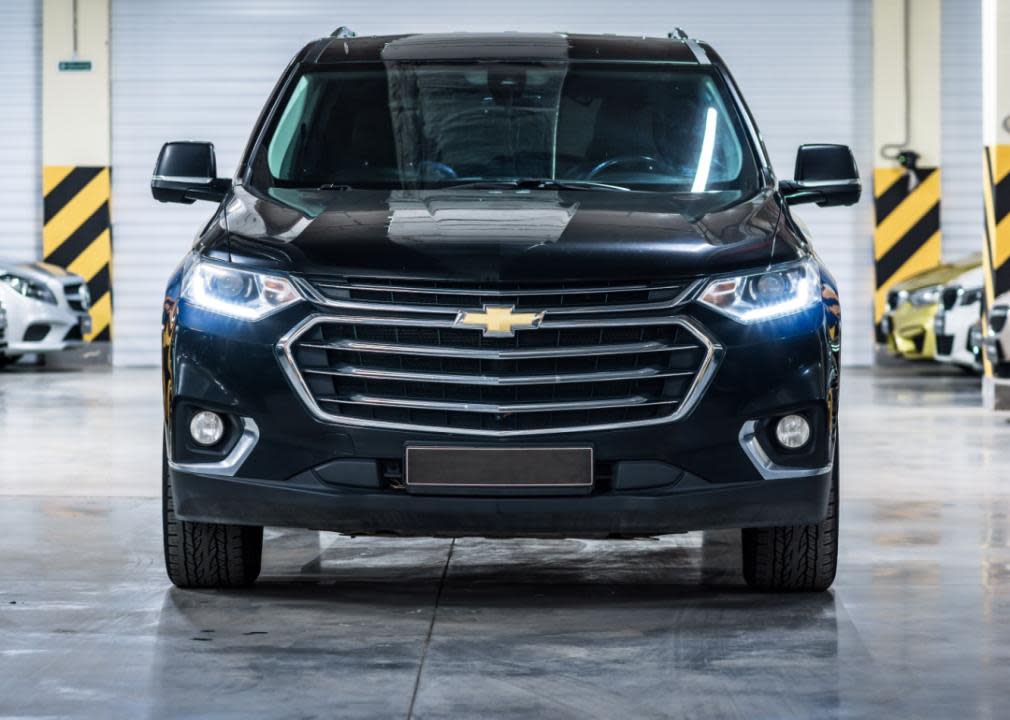
More than 3 in 4 Americans drive their own car to work, making regular car maintenance like oil changes and replacing tires a priority in most American households.
But drivers should also be aware that manufacturing-related safety issues can arise at any time, even years after they purchase their vehicles. These sometimes life-threatening mechanical or electrical problems can force car manufacturers to issue recalls, often asking car owners to bring their vehicles into their local dealership for a free repair or replacement part.
Insurify identified the eight recalls affecting the most vehicles in 2023, using data from the Department of Transportation. Recalls on cars and their components have potentially affected up to 27.5 million vehicles in 2023.
The recalls can affect a relatively small group of cars (like the Honda recall on some CR-V frames that may become rusted and detached) or an immense number of vehicles (like the ongoing court fight over a defective air bag inflator that may affect 25 million cars from various manufacturers). In the past three years, Ford has issued the most recalls.
If you don't see your car listed below, go to the National Highway Traffic Safety Administration website and input your car's VIN number to double-check that there are no recalls.

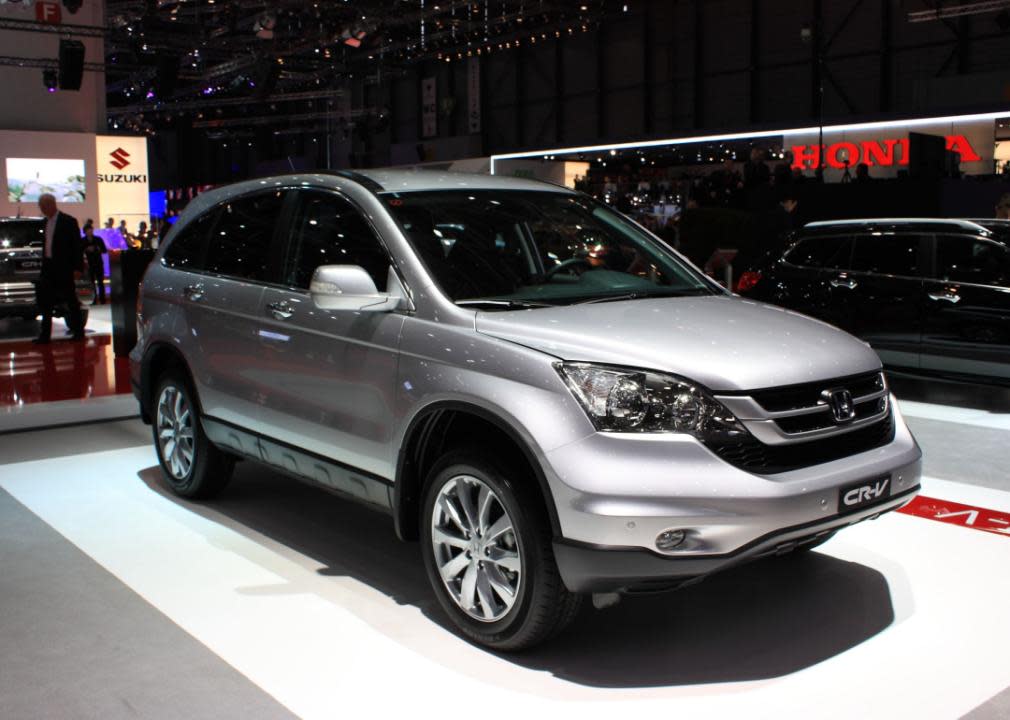
#8. Honda partial frame structure detachment
- Potentially affected vehicles: 616,128
- Date reported: March 30
- Cars affected: 2007-2011 Honda CR-Vs
In states where deicing salt is often used on snowy roads, drivers of some Hondas may face an increased risk of their car accumulating rust, which could possibly make them lose control of their vehicles.
In May 2023, Honda notified drivers of some 2007-2011 CR-Vs that salt corrosion might cause a detached rear trailing arm, which is part of the suspension system and connects a car's axle to the main body of the frame. When the trailing arms become disconnected, drivers could lose control of their cars, increasing the risk of a crash. Honda officials asked those drivers to bring their CR-Vs into a dealership for a free inspection. Dealers can install a support brace, repair the rear frame, or in some cases, offer to buy back the car.
The recall affects cars purchased or registered in Canada and the following states are included: Connecticut, Delaware, Illinois, Indiana, Iowa, Kentucky, Maine, Maryland, Massachusetts, Michigan, Minnesota, Missouri, New Hampshire, New Jersey, New York, Ohio, Pennsylvania, Rhode Island, Vermont, Virginia, Washington D.C., West Virginia, and Wisconsin.
Owners may reach Honda customer service at 1-888-234-2138.
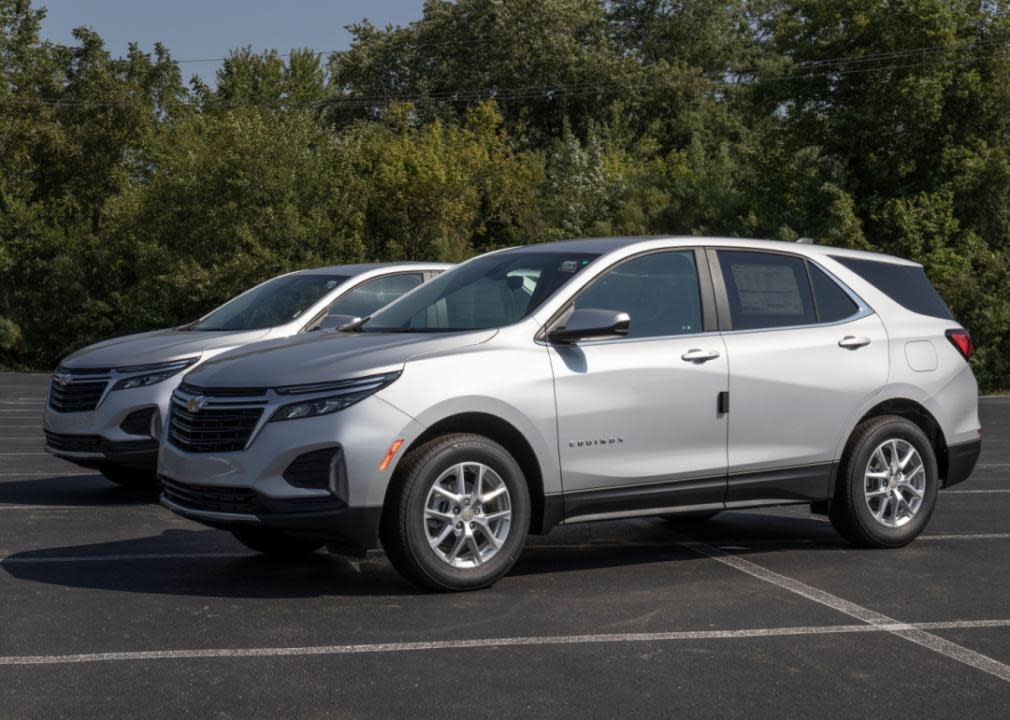
#7. General Motors child seat anchors
- Potentially affected vehicles: 668,187
- Date reported: May 11
- Cars affected: 2020-2023 Chevrolet Equinox and GMC Terrain vehicles
Parents using Chevrolet Equinox or GMC Terrain vehicles should pay close attention to a General Motors recall that went out earlier in 2023.
The LATCH anchorage bars, or small metal locations in back seats that caregivers use to install a child's car seat, may be ineffective. In their recall of 2020-2023 Chevrolet Equinox and GMC Terrain vehicles, GM officials explained that the anchorage bars may have too much powder coating (a type of dried paint) that prevents drivers from installing children's seats. GMC officials advised drivers to use the cars' rear seat belts to secure the child seats until they are able to get to a dealer, which will inspect the bars and replace the powder coating if needed.
Owners can call GMC customer service at 1-800-462-8782 or Chevrolet customer service at 1-800-222-1020.
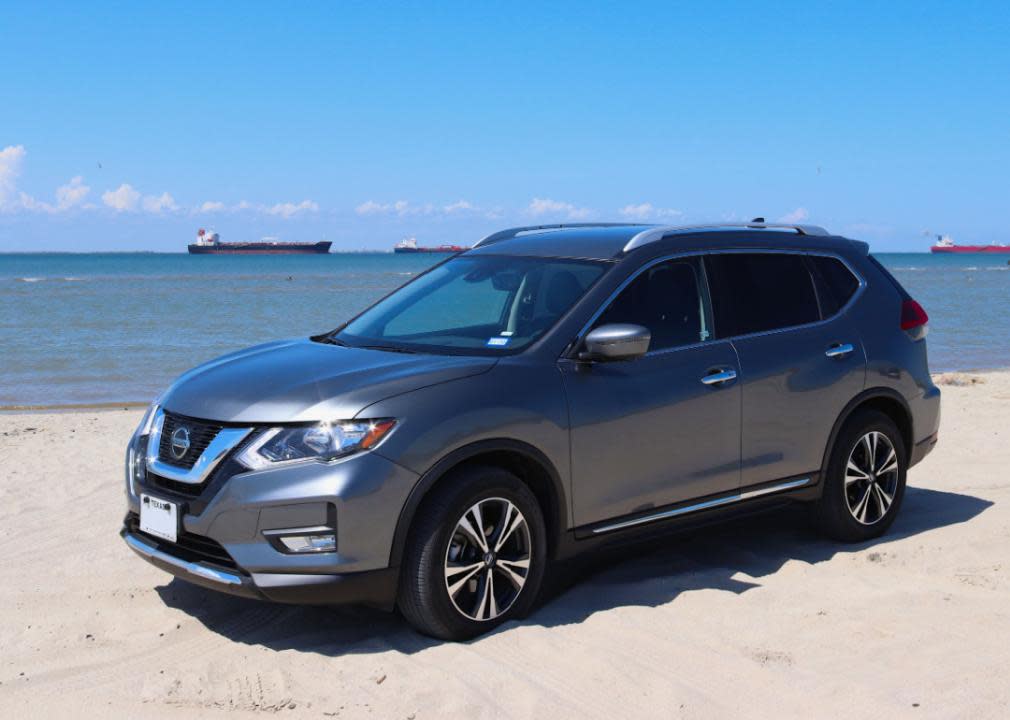
#6. Nissan ignition key shutoff
- Potentially affected vehicles: 712,458
- Date reported: Feb. 16
- Cars affected: 2014-2020 Rogue and 2017-2022 Rogue Sport vehicles
Nissan Rogue vehicles could, well, go rogue due to a finicky key design. Those driving the 2014-2020 Rogue and 2017-2022 Rogue Sport who have a "jackknife style" ignition key—the kind where the metal key flips outward from the keyfob—should take their car into the dealership for inspection, according to a Nissan recall.
A driver may accidentally bump the key fob and push it into a folded position, which would shut off the car while they are driving and create an unsafe situation. If this occurs, drivers are at an increased risk of a crash, and the car's air bags may not deploy properly. Dealerships can place a spacer into the ignition's key slot to solve the issue.
For drivers who can't get to a dealership right away, it may be best to get rid of any hanging keychains that might pull on the key fob. Call Nissan's customer service at 1-800-867-7669 with questions.
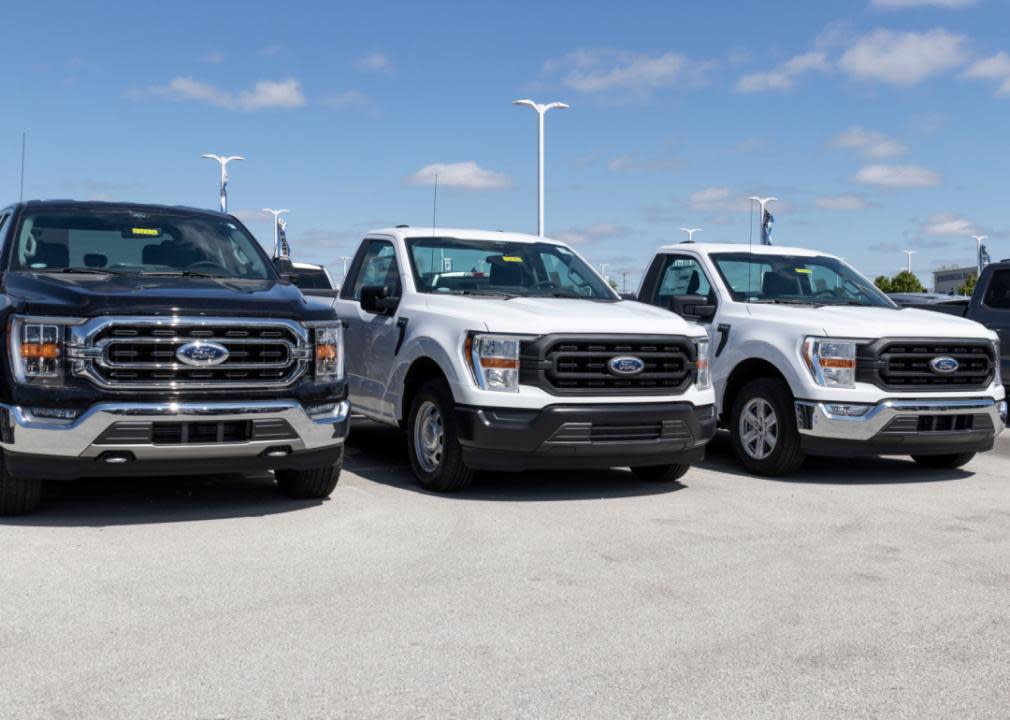
#5. Ford parking brake
- Potentially affected vehicles: 870,701
- Date reported: July 21
- Cars affected: 2021-2023 F-150 vehicles
Some Ford F-150 truck drivers might experience a wiring system defect that could unexpectedly trigger the electric parking brake. For trucks with a single exhaust system, a rear wiring bundle can chafe against the rear axle housing, causing it to short circuit and activate the parking brake, according to The Associated Press.
Drivers might see a warning message or a parking brake warning light. Ford encourages the drivers to contact their local dealership for an appointment or call 1-866-436-7332.
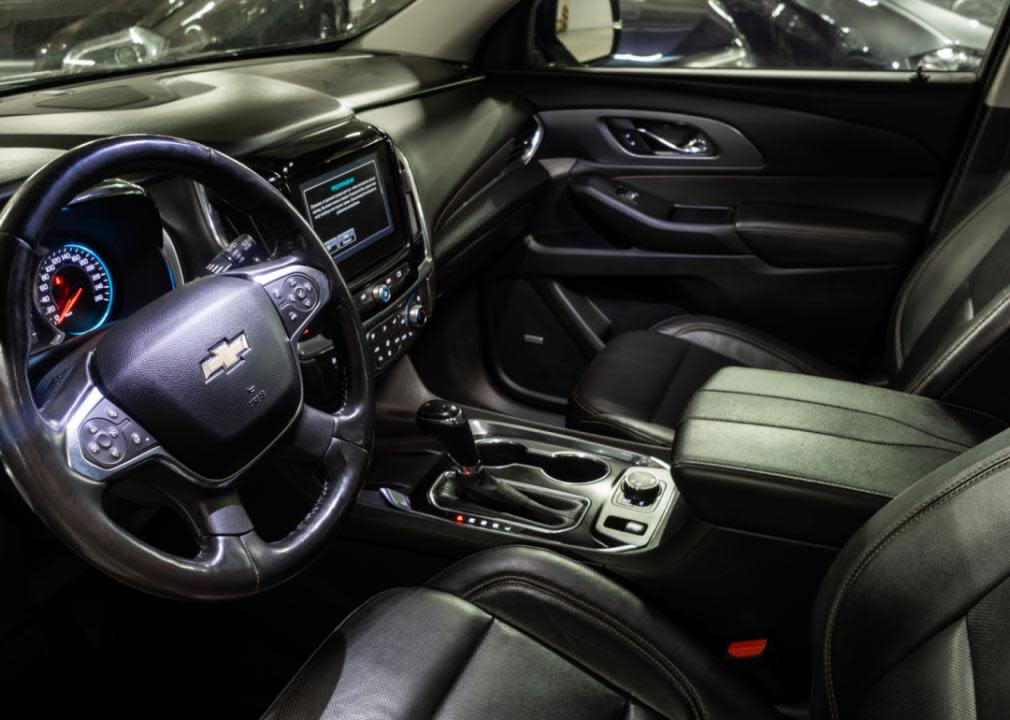
#4. General Motors air bags
- Potentially affected vehicles: 995,085
- Date Reported: May 10
- Cars affected: 2014-2017 Buick Enclave, Chevrolet Traverse, and GMC Acadia vehicles
General Motors recalled some cars with defective air bag inflators that may explode and launch shrapnel, which could seriously injure or hurt people. GM was one of the first dealers to issue a recall due to the inflators, following the death of a Michigan mom who was in a minor crash in 2021 and was subsequently struck by metal fragments in her Chevy Traverse.
However, the NHTSA says more than a dozen automakers use the same inflators, produced by ARC Automotive Inc., and "... at least 25 million of the 284 million vehicles on U.S. roads are believed to contain them," according to AP.
Other car brands that may have the same inflators include BMW, Ford, Toyota, Buick, Volkswagen, Audi, Porsche, Hyundai, Stellantis, and Kia. The NHTSA has pushed for a full-scale recall, but ARC has refused, leading to a potential battle in court.
NHTSA claims ARC inflators caused at least seven injuries and two deaths since 2009, and estimates the likelihood of a similar rupture occurring as 1 in 370,000.
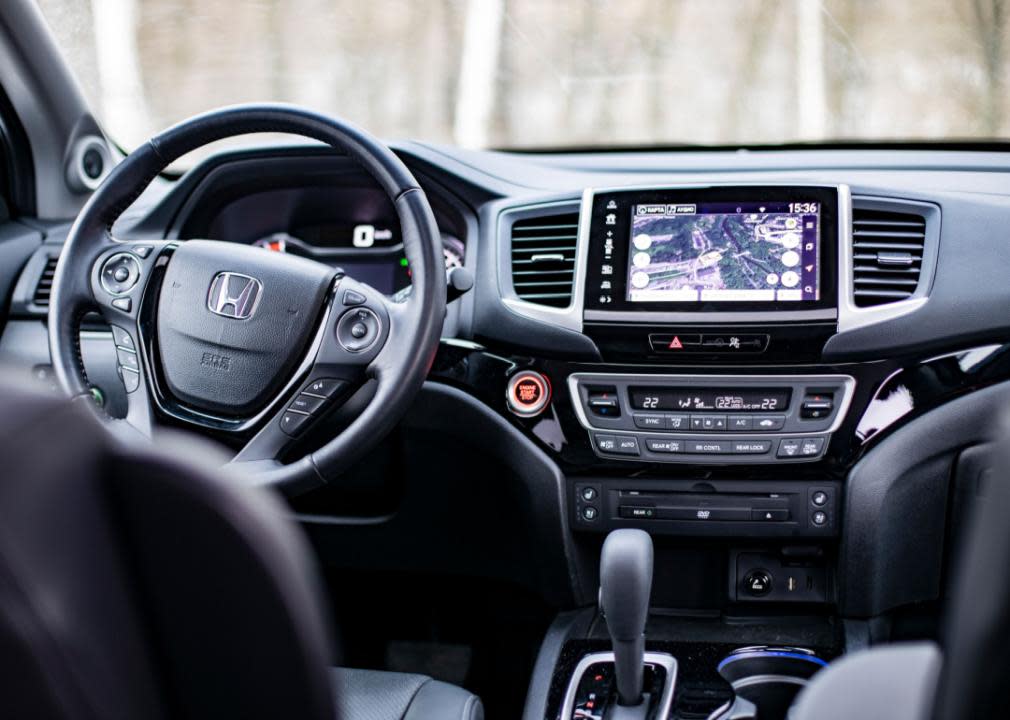
#3. Honda rearview image
- Potentially affected vehicles: 1.2 million
- Date reported: June 15
- Cars affected: 2018-2023 Odyssey, 2019-2022 Pilot, 2019-2023 Passport vehicles
Backup cameras on some Hondas may not work properly, company officials announced this summer. The affected cars include 2018-2023 Odysseys, 2019-2022 Pilots, and 2019-2023 Passports. A cable connector in the media-oriented systems transport may be defective and prevent the backup camera's live video from appearing on the display screen.
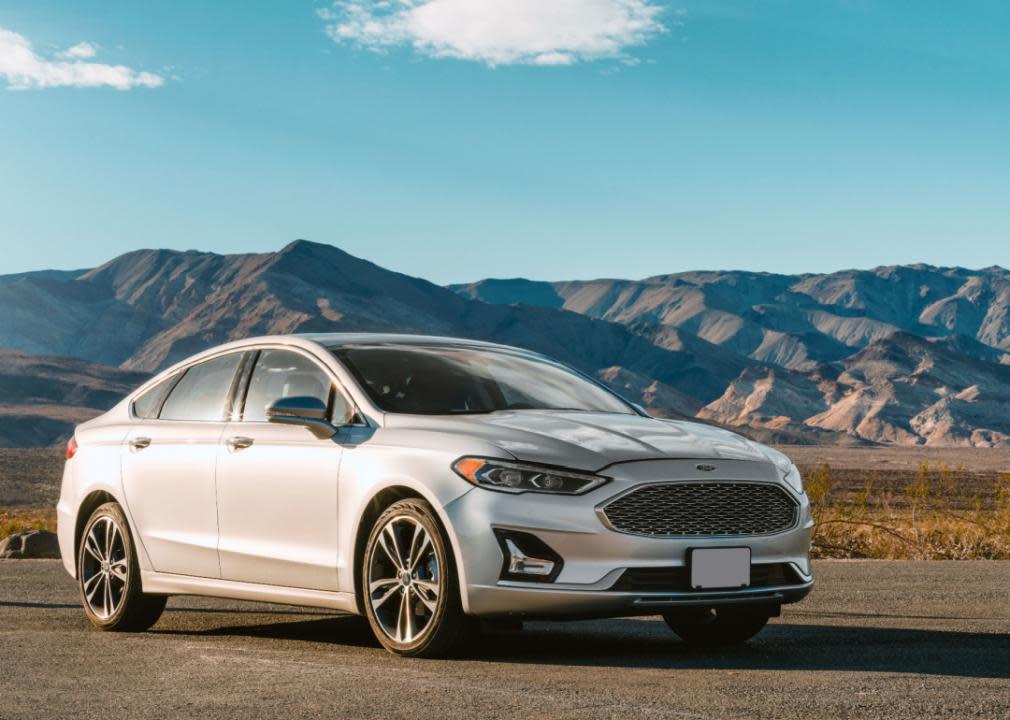
#2. Ford front brake hoses
- Potentially affected vehicles: 1.3 million
- Date reported: March 10
- Cars affected: 2013-2018 Fusion and Lincoln MKZ
A leaky brake hose in some 2013-2018 Ford Fusion and Lincoln MKZ vehicles could increase the risk of a crash. Ford recalled the vehicles and instructed dealers to replace the front brake hoses free of charge, according to documents posted on the NHTSA website.
Drivers might see a brake fluid warning light if a leak occurs, and according to Consumer Reports, drivers "may also notice changes in how the brake pedal feels when it's pushed down and that it takes longer to stop the vehicle."
Ford recalled some Lincoln MKX SUVs and Ford Edges in 2020 for a similar problem.
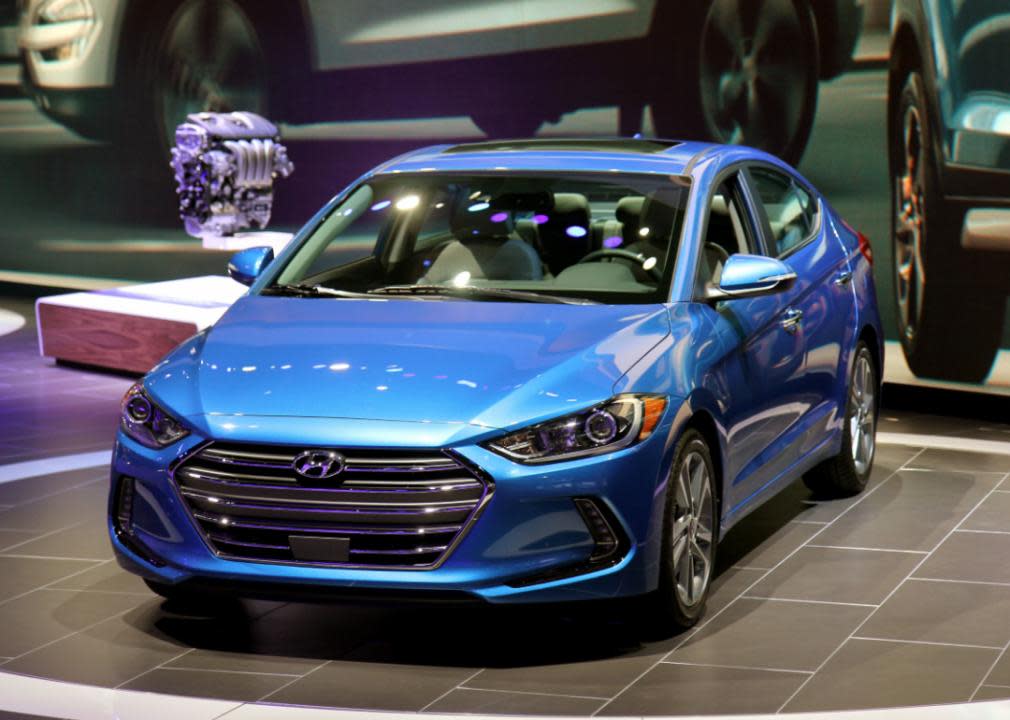
#1. Hyundai and Kia fire risk
- Potentially affected vehicles: 3.3 million
- Date reported: Sept. 22 & 25
- Cars affected: Several Hyundai and Kia cars
Hyundai and Kia are recalling several of their cars after discovering that they may catch fire.
In Hyundais, the anti-lock brake system can leak, trigger an electrical shortage, and ultimately cause a fire in the engine area. In Kias, the cause of fire may be a similar part, called the hydraulic electronic control unit, short-circuiting and causing the fire. The parts were produced by HL Mando Corp., or Mando.
Affected Hyundais include 2011-2015 Elantra, Genesis Coupe, Sonata Hybrid, 2012-2015 Accent, Azera, Veloster, 2013-2015 Elantra Coupe, Santa Fe, 2014-2015 Equus, 2010-2012 Veracruz, 2010-2013 Tucson, 2015 Tucson Fuel Cell, and 2013 Santa Fe Sport vehicles.
Affected Kias include 2010-2019 Borrego SUVs, 2014-2016 Cadenza SUVs, 2010-2013 Forte and Forte Koup sedans and coupes, 2015-2018 K900 sedans, 2011-2015 Optima sedans, 2012-2017 Rio sedans and hatchbacks, 2010-2011 Rondo hatchbacks, 2011-2014 Sorento SUVs, 2011-2013 Soul hatchbacks, and 2010-2013 Sportage SUVs.
The carmakers noted that the cars can catch fire while parked or driving, and asked drivers to park outside and away from buildings until a dealer is able to repair the issue. Hyundai says it will mail notification letters to vehicle owners in November 2023.
Data reporting by Paxtyn Merten. Story editing by Ashleigh Graf. Copy editing by Tim Bruns. Photo selection by Michael Flocker.
This story originally appeared on Insurify and was produced and distributed in partnership with Stacker Studio.
